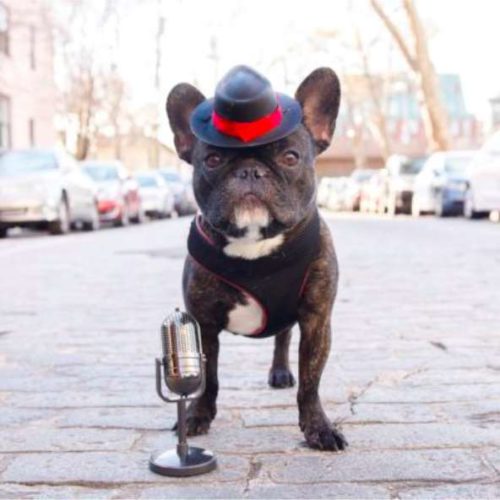Maybe you have a friend who fosters animals or maybe you saw it on Instagram — whatever sparked your interest, you’re now considering fostering a homeless pet. Fostering is an incredible thing to do as it saves so many lives. Some may be looking to foster to see if you’re ready to adopt a dog, while others may be looking to foster just to make a difference. Regardless of whatever positive reason is behind this decision, here’s everything you need to know about fostering animals in Hoboken from HG’s local adoption/foster expert, Kristina Helfer.
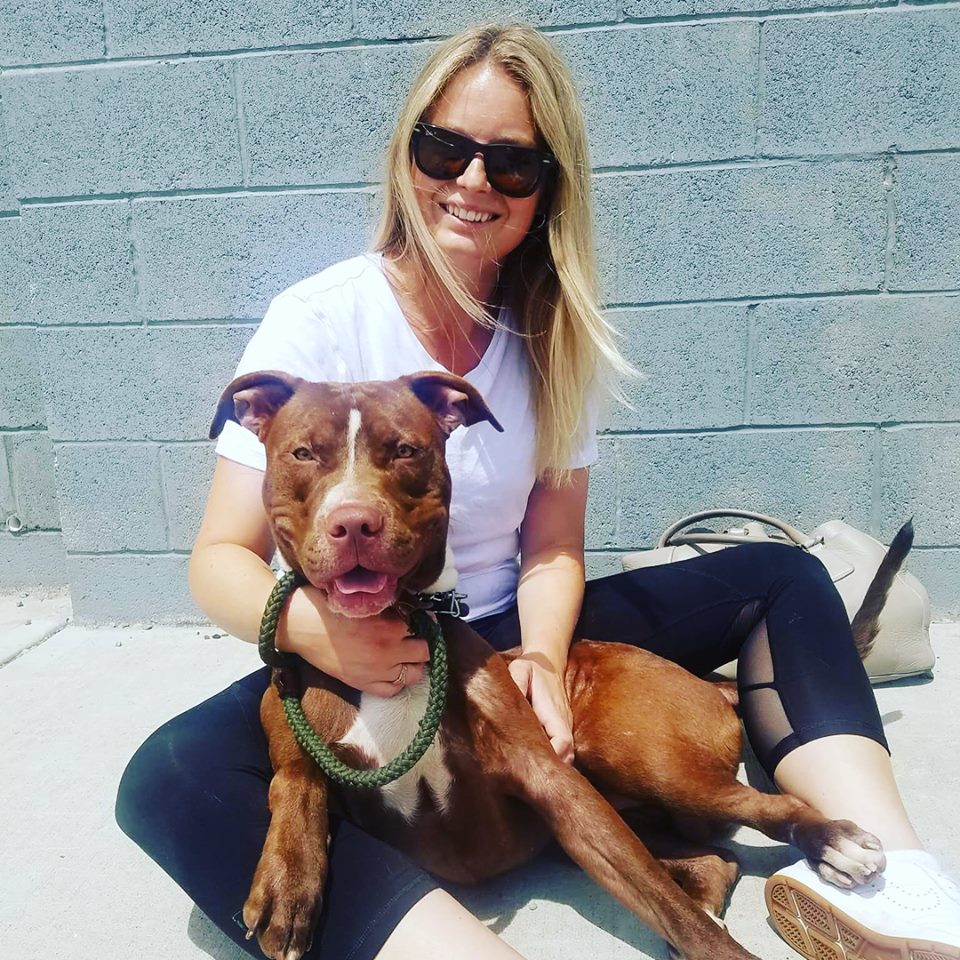
^Kristina with one of our former adoptable Hoboken pups, Phoenix, who has since found his forever home!
My name is Kristina Helfer and I am an Adoption/Foster Coordinator for a local rescue, Wise Animal Rescue, as well as a veteran foster mom. I have fostered over 100 dogs ranging in ages from three weeks to two and a half years old. I also own three of my own rescue dogs and help out with my brother’s rescue dog. I get asked questions all the time from friends, family, and people who are fostering or are looking to foster. Below, you will find the answers to some of your questions so you can decide if you’re ready to become a foster parent.

FAQs About Fostering
Do I have enough time to dedicate to a foster?
To foster a dog, you need to open your heart and home, and it will take up a good chunk of your time. As a rule of thumb for dogs, I tell my fosters that they can only be out of the house for as many hours as the dog is months old. For example, if a puppy is four months old, it cannot be left alone for more than four hours at a time. The absolute max, regardless of age, is eight hours. With that being said, even adult dogs really need a dog walker.
When the animal arrives at your home, there is roughly a two-week ‘adjustment’ period for rescue dogs that you must be mindful of. In the first few weeks, the dog you are fostering needs to figure out where it is, why it is here, and who you are. During that period, it is essential that you make yourself available and spend as much time as you can with the dog to ensure its adjustment goes smoothly. A dog walker is an important part of fostering as it helps with socialization. Please make sure your dog walker is very rescue-dog savvy and understands the dog’s limitations, likes, dislikes, and is comfortable walking it.
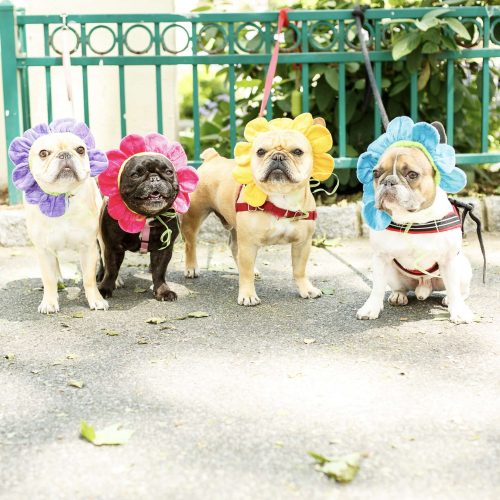
Read more: How to Volunteer at Liberty Humane Society
How much does it cost to foster?
Different rescues and shelters have different processes for fosters. Most rescues and shelters will pay for all of the dog’s medical bills. In addition, many also provide foster volunteers with food, toys, blankets, a crate, etc. as those items are frequently donated by supporters. In my experience, I paid for my dog walker and I also purchased items here and there. I sometimes would buy my own food, collars, treats, etc. just to try to help the organization financially as rescuing dogs is expensive.
How long will the dog be with me?
This varies depending on the situation. Unless the dog was with me for behavior modification only (which is a set period of time I trained a dog to see if he/she was adoptable), I kept the dogs until they were adopted. Sometimes, I only had a dog for a couple of days. Other times, I had them for months. Please talk to the foster coordinator about your availability, including upcoming vacations and events, so that arrangements can be made if you need assistance. If you can only foster for a certain amount of time, let them know upfront so that a backup foster can be put into place.

How do I choose a dog that’s right for me? I do/don’t have training experience. Is that ok?
The organization you are fostering for can help make sure you are matched with the right dog for your lifestyle. When speaking to them, make sure to let them know your training experience, work hours, and if you have a yard and/or dog walker. Different dogs need different things while in foster, and being upfront and honest with the organization will ensure that you and the dog have a safe, enjoyable foster experience. There are many, many different types of dogs that are in need of foster homes and the organization will be able to find the right match for you!
In addition, rescues and shelters have different resources available to help you with training. It is very important that while the dog is in your care, you work on basic obedience, potty training, and crate training. Please make sure you read through your foster paperwork, as many times rescues and shelters include documents on how to train. If you feel the dog you are fostering is having behavioral issues that are above your realm of training skills, please contact the organization you are working with immediately. Never feel guilty or that you are in the wrong if/when problems arise.
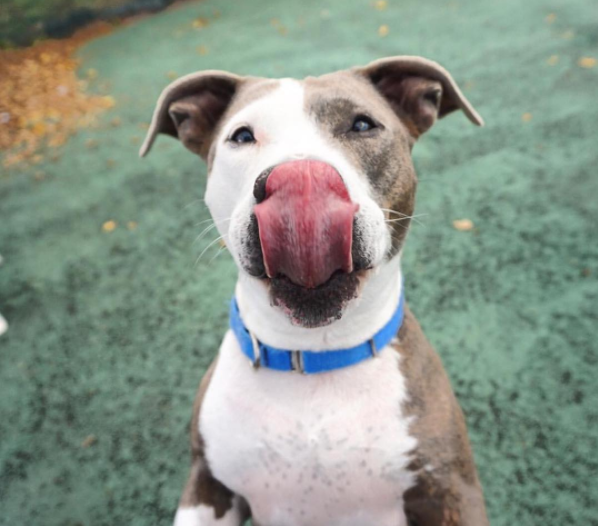
Read more: Adoptable Dog – Europa
How can I possibly give the dog up? What if I get attached?
You will get attached to your foster. There is just no way around it. The best advice I can give you is to decide at the beginning, before the pup comes home, whether you plan on possibly keeping the dog. This is important for a couple of reasons. First, it’s important so that the organization can properly process applications for your foster. If you are indecisive, it will only hurt your foster who may lose out on its forever home while you are trying to decide. If you think you may want to keep a foster, foster-to-adopt is a great way to find out if you are ready for a dog and if this dog is your dog. I always encourage my fosters to keep fostering for as long as they can. Foster homes are few and far and rescues and shelters desperately need them.
Without foster homes, many dogs do not have a chance at survival. With that being said, if you ‘foster fail’ as it’s called, that’s ok! After nearly two dozen fosters, I decided it was time to foster-to-adopt… which doesn’t feel like a ‘fail’ at all, since after a few dogs weren’t quite a match, my dog Piper and I recently adopted her brother, Frank, who fit into our family perfectly. Also, always remember that it is ok to cry when your foster gets adopted! It’s an extremely emotional experience fostering a dog, but, I promise, it’s very well worth it.
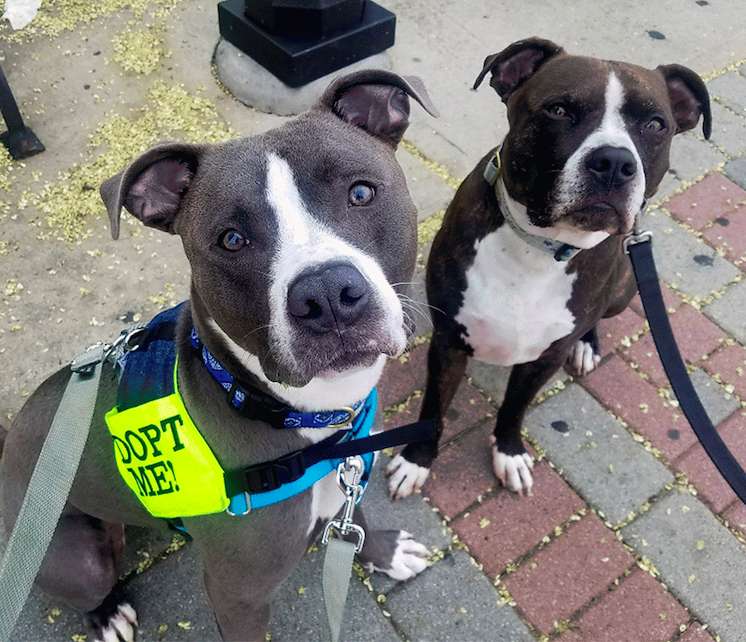
Fostering is a big commitment with an even bigger reward. You can be the reason a dog finally finds its forever home. You can save a life. If you have any questions about how to get involved, email me at kh@primereg.com!

